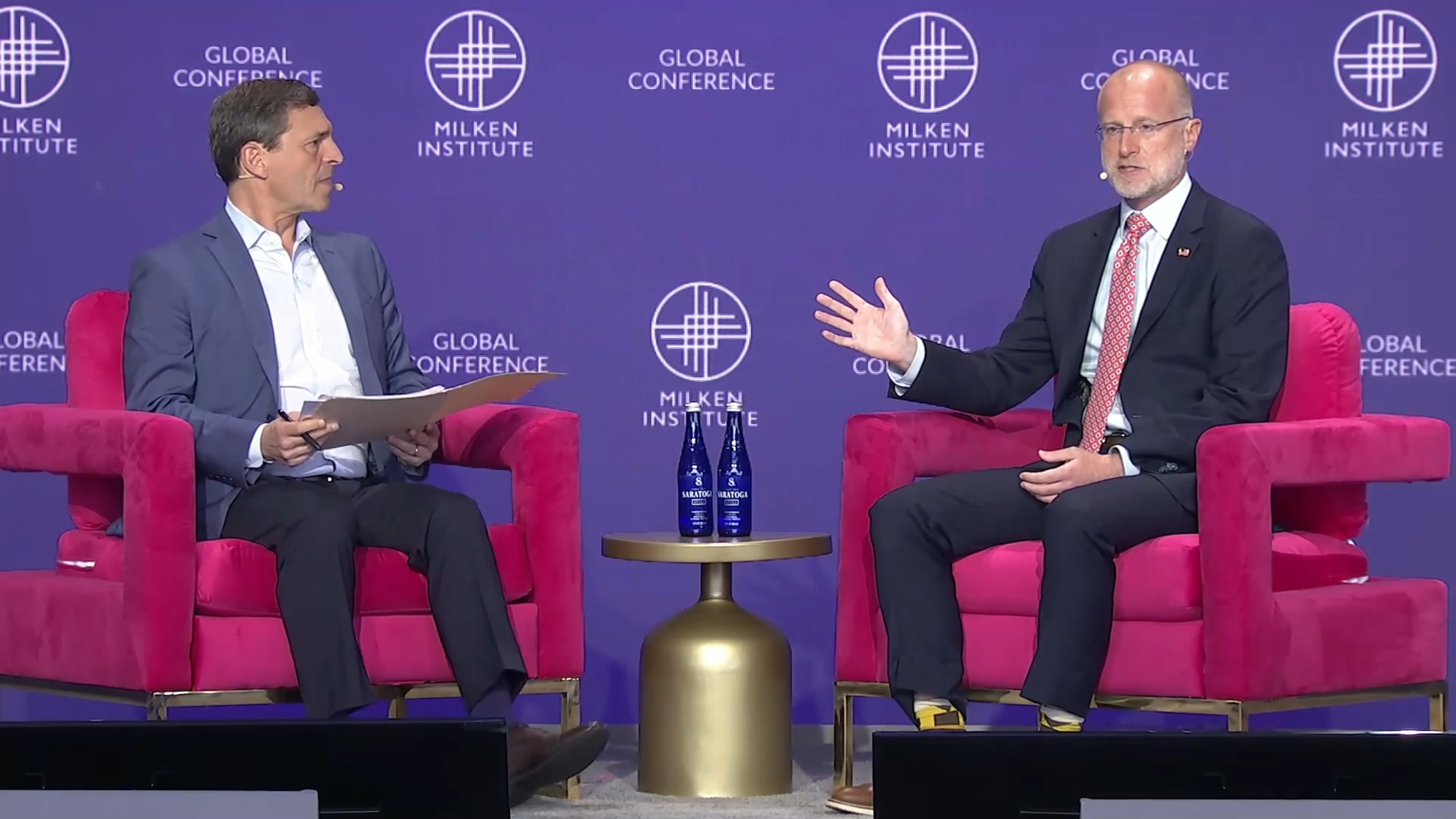FCC’s Carr Calls Station Ownership Caps ‘Arcane’ and ‘Artificial‘
In an interview, he provided his clearest signal to date that he wants to remove them

WASHINGTON—During a lengthy interview at the Milken Institute, Federal Communications Commission Chair Brendan Carr provided the clearest signal of his tenure that he would like to get rid of ownership rules and caps , in his view, are making it harder for local broadcast stations to compete with big tech and streamers.
During the interview, Carr once again attacked the broadcast networks for news bias and their efforts toward diversity, equity and inclusion (DEI). Of the FCC investigation into Disney’s DEI practices, Carr alleged that “the preliminary data indicate … they’re doing intentional discrimination, potentially among race and gender. That's true. That's a really big deal.”
Carr also repeated arguments that he wanted to shift the balance of power in affiliation agreements from the broadcast networks back to the affiliates, which he believes offer better, more unbiased news.
As part of that, he added that ownership reform “might be one way” to boost local broadcasters.
“What I would do is empower those local broadcasters [who] actually serve their local communities,” he said. “There's lots of ways we can do that. Looking at ownership reform might be one way to do it … We have these arcane, artificial limits on how many TV stations any one company can own. But of course, that doesn’t apply to big tech. So you have, you know, relatively small TV station groups that are competing with Google and Facebook and others in the advertising part. So I want to ultimately empower those local stations and, frankly, constrain some of the power of those national programmers.”
The professional video industry's #1 source for news, trends and product and tech information. Sign up below.
George Winslow is the senior content producer for TV Tech. He has written about the television, media and technology industries for nearly 30 years for such publications as Broadcasting & Cable, Multichannel News and TV Tech. Over the years, he has edited a number of magazines, including Multichannel News International and World Screen, and moderated panels at such major industry events as NAB and MIP TV. He has published two books and dozens of encyclopedia articles on such subjects as the media, New York City history and economics.

